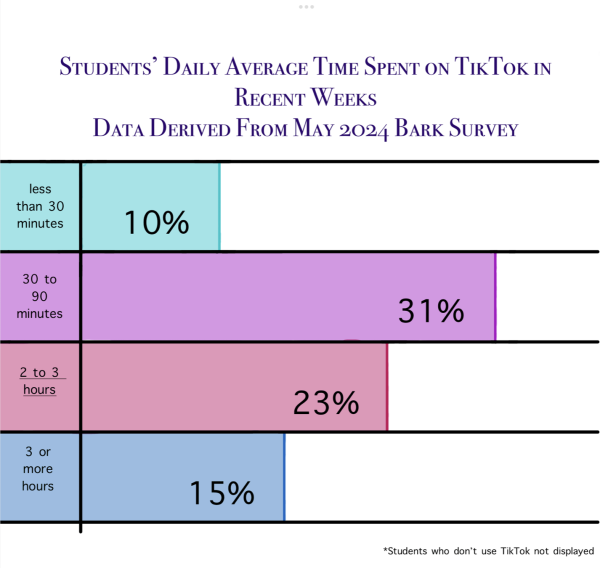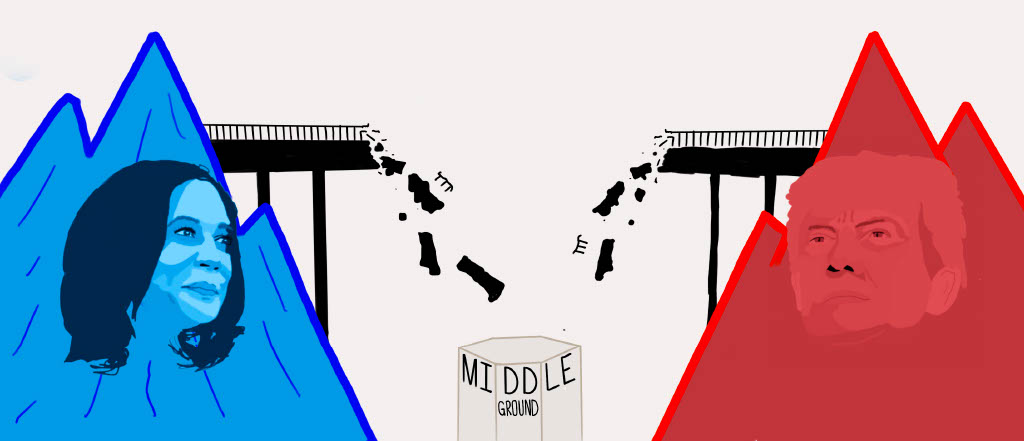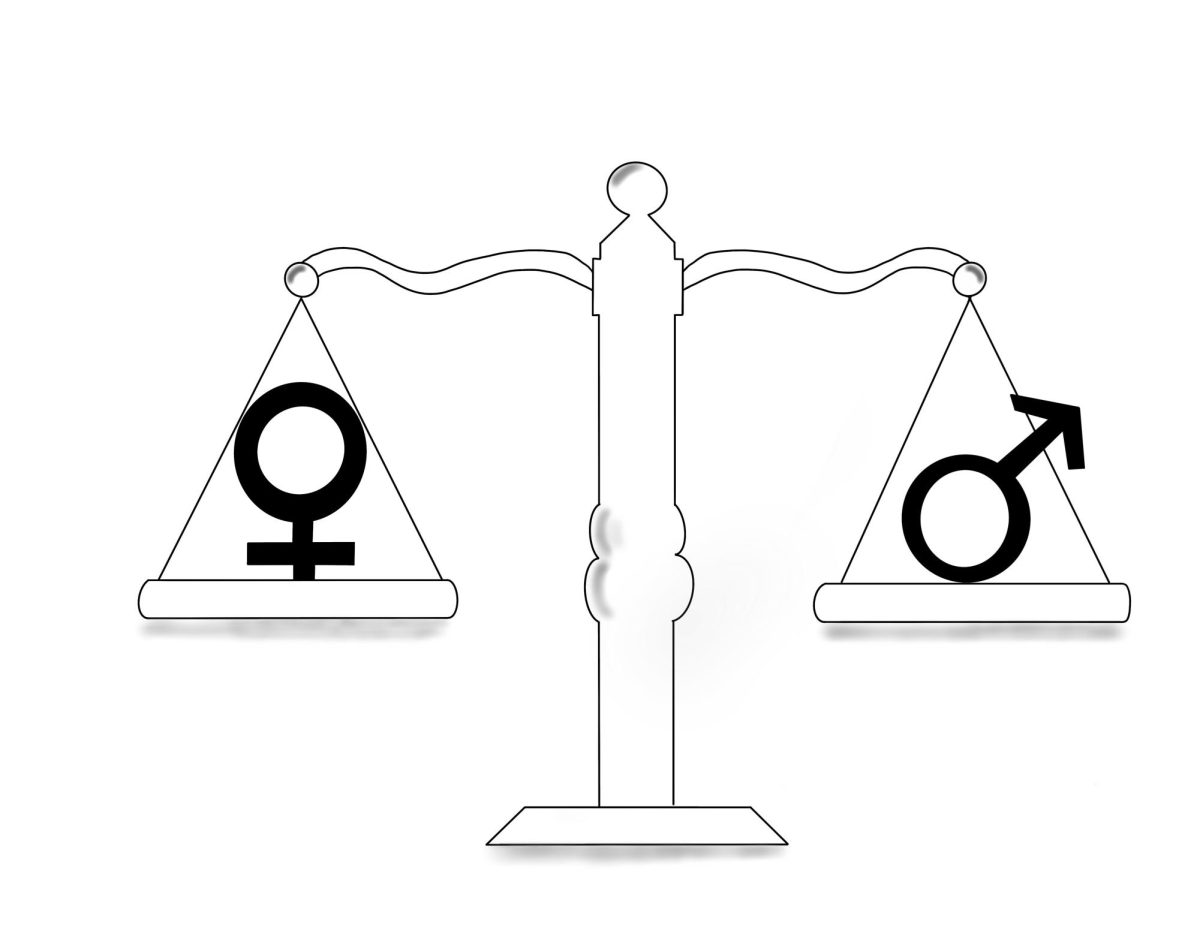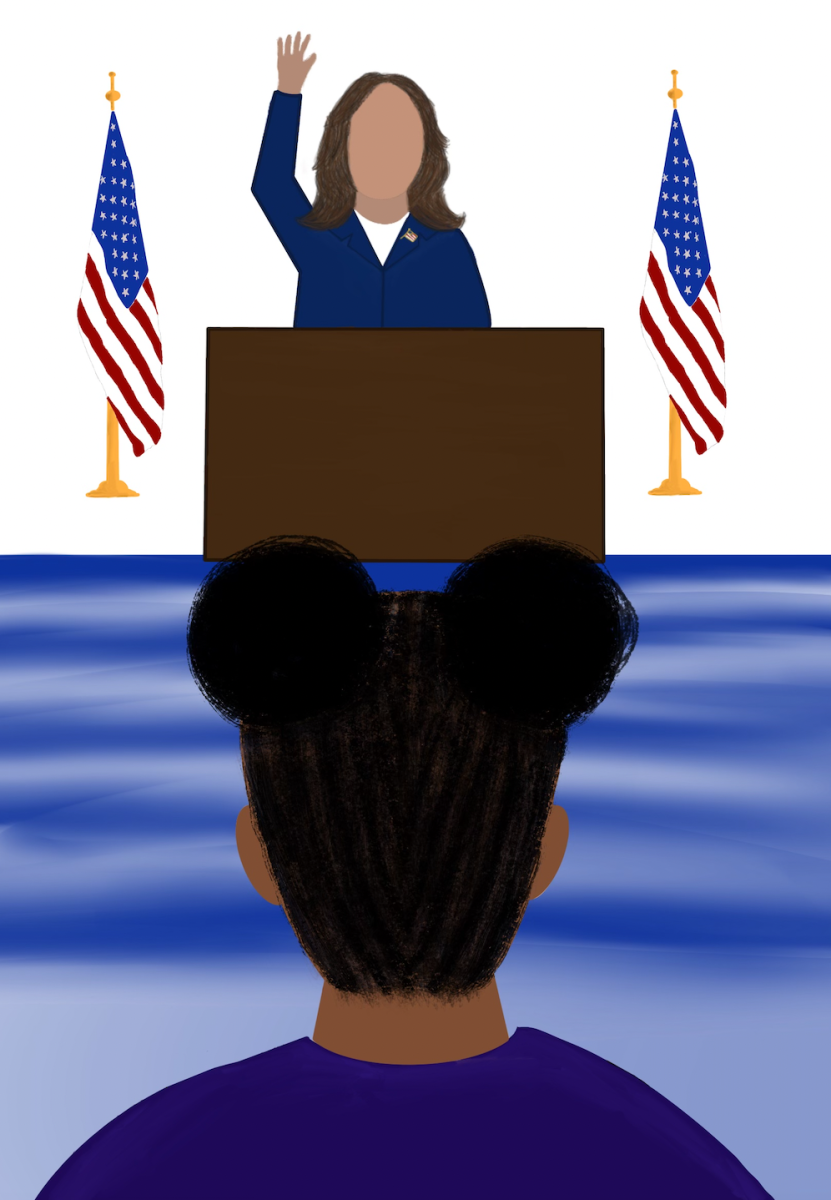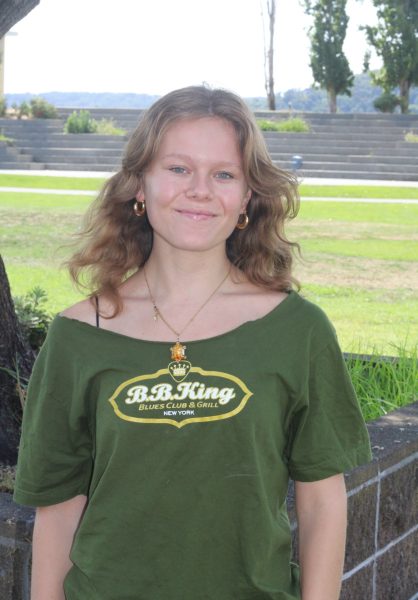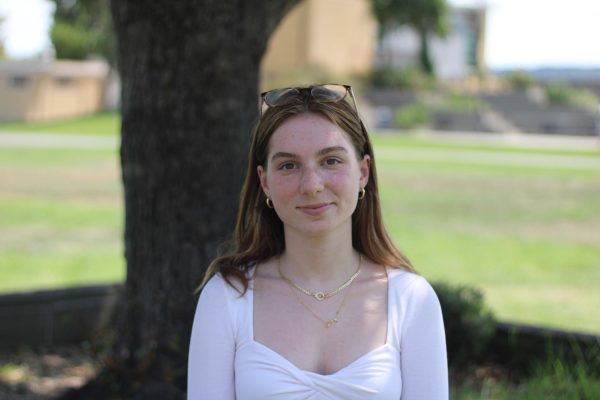A brush of mascara against a well-curled eyelash, a dash of concealer under the eyes and if the day calls for it, a dab of blush across the cheeks. Amid an otherwise hurried day, a makeup routine such as this can provide a moment for self-reflection, and for some, a chance to express their creative side. However, beneath the surface of a simple routine lies a more sinister truth – makeup, for many young girls, has become an integral part of their self-perception.

Observing conversation and climate at Redwood, it becomes apparent that for many, the act of going to school without makeup can feel like a Herculean feat — as if daily makeup has become an act of self-preservation rather than self-love. In a world increasingly consumed by social media, developing a healthy relationship with makeup can be crucial to preserving a sense of self-acceptance beyond the standards of the day
Throughout history, the use of makeup has evolved to fit societal norms. First examples of the use of makeup include ancient Egypt, where people used eyeshadow and eyeliner made of natural materials. In America, however, the emphasis on makeup in broader society began in the wake of World War II, as increasingly mainstream movies and advertisements marketed a singular image of beauty to women. Soon, makeup for many women became essential to the pursuit of this beauty standard, as former Women’s History teacher Ann Jaime noted.
“Movies shifted [the beauty standard] because they popularized certain images that women aspired to [attain], so there was more conformity,” Jaime said. “My mom was a child of the 50s, and she and her friends say, ‘Never leave the house without lipstick,’ even to this day.”
Today, as social media becomes more prevalent in girls’ lives, it can blur the line between creativity and conformity in makeup. Junior Delfina Serrati describes that in her childhood, she followed makeup tutorials by YouTube artists such as KittiesMama and James Charles, as a source of creativity free from judgment. However, as she grew older, her relationship with makeup began to change.
“When I was younger, [makeup] used to be a vessel to express my creativity. But as I got older, I saw it as a way of hiding my insecurities, like a mask to the world,” Serrati said.
Similar to Serrati’s experience, television led junior Cat Aldana to believe in a false notion of beauty and makeup’s role in daily life.
“In [the TV series], ‘Pretty Little Liars,’ they wear so much makeup, and they never talk about it. It’s like, ‘Oh, that’s their natural face, that’s just how they are,’” Aldana said. “As a kid, [I thought], ‘Maybe that’s how I’m supposed to look.’”

The use of makeup on the internet and on television can also create societal beauty standards that are reflected in attitudes at Redwood. According to a September 2023 Bark survey, out of those students who consistently wear makeup, 51 percent began wearing makeup in middle school, while 13 percent started in elementary school. Consumer habits also reflect this trend towards earlier and earlier makeup usage; according to data by Mintel, 80 percent of American nine to 11-year-old girls use beauty products as of 2016. These marketing strategies can make individuals feel a need to grow up faster, as Serrati noted.
“[Using makeup], I’ve wanted to look older. I wanted to have this sense of, ‘I am mature. I am enough. I am smart. I am knowledgeable. I am not this 12-year-old girl who is naive and doesn’t know anything about the world,” Serrati said.
Makeup can also lead individuals to develop a different understanding of their own appearance — a phenomenon that is exacerbated as makeup becomes an essential aspect of girls’ lives at an increasingly early age. For Aldana, using makeup more frequently throughout middle and high school shifted her self-perception as she grew accustomed to seeing herself with makeup at all hours of the day.
“Because I do use [makeup] every day, I’m not used to seeing my face without makeup anymore,” Aldana said. “I don’t feel ugly without makeup — I just don’t feel as secure.”
While makeup can perpetuate a problem of conformity, it is also important to recognize the value it serves for many as an outlet for self-expression, through which girls today can discover their inner beauty.
“As I matured, I started to use my makeup in ways that I didn’t use it before — not as a way to hide, but more to enhance my own beauty,” Serrati said. “[It’s important to] look in the mirror, look at yourself and think, ‘This is me, and that’s okay.’”
As beauty secrets are passed down through generations and as groups of friends apply blush and eyeshadow before a school dance, a new source of community is formed: one founded not in the search for beauty, but in the connection created through it. Jody Friedericks, who previously worked in makeup marketing and at a Saks Fifth Avenue makeup bar, explained how makeup allows her to access a depth of confidence otherwise unattainable. Beyond individual reflection, however, Friedericks notes the unique connections that are created through common experiences with makeup.

“There is bonding when a group of people are all getting ready, doing their makeup together, helping each other or borrowing something from somebody,” Friedericks said. “[Working with clients] was so rewarding for me because I could tell that they felt beautiful. But to me, [the makeup] was just highlighting their inner beauty and [the features] that were unique to them.”
Similarly, the moments Serrati shares with her mom while getting ready together have enabled her to find a deeper, more meaningful relationship with makeup and with her own beauty.
“I love getting ready with my mom. It’s such a fun time because I get to teach her and she gets to teach me. … But it’s also [a time] to be creative and to feel beautiful and empowered,” Serrati said.
As Friedericks illustrates, while makeup has allowed generations of women to express their identities, it’s important to keep in mind that makeup, and the beauty it achieves, is only skin deep; external appearances should never determine self-worth.
“I don’t think that makeup makes you beautiful. I think that makeup is a tool that allows you to find beauty from within,” Friedericks said. “One of the hardest things to learn as a girl, especially today, is to love yourself. I truly believe that true beauty comes out in the way you feel.”





